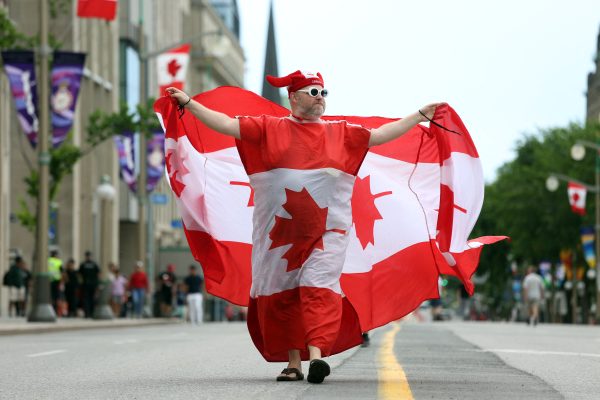According to a Canadian Human Rights Tribunal, white people cannot claim discrimination with the Tribunal recently writing, “an allegation of racial discrimination or discrimination on the grounds of colour is not one that can be or has been successfully claimed by persons who are white and non-racialized,” The Financial Post reported.
The comments were made in relation to a human rights complaint filed by a father, on behalf of his son, who was excluded from participating in a government funded summer program because he wasn’t black.
In June 2021, the Ontario teenager attempted to sign up for the “SummerUp” program, sponsored by the Ontario provincial government, only to find out that the opportunity was only for black students. This prompted his father to make the complaint to the Tribunal.
Bruce Pardy, director of Rights Probe and a professor of law at Queen’s University argued in a Financial Post column that Canadian law appears to stand in contrast to the Tribunal’s comments.
The Ontario Human Rights Code explicitly states that “Every person has a right to equal treatment with respect to services, goods and facilities, without discrimination because of race, ancestry, place of origin, colour, ethnic origin, citizenship, creed, sex, sexual orientation, gender identity, gender expression, age, marital status, family status or disability.”
However, the Code has a loophole for “Special Programs” as spelled out under Part II of the Code entitled, “Interpretation and Application,” which reads, “A right under Part I is not infringed by the implementation of a special program designed to relieve hardship or economic disadvantage or to assist disadvantaged persons or groups to achieve or attempt to achieve equal opportunity or that is likely to contribute to the elimination of the infringement of rights under Part I.”
Any government, company or organization, like a school board, can apply to designate a program that is clearly discriminatory, as a “special program.”
The “SummerUp” program however, was not designated as such but the Tribunal ruled that it met the designation anyway. “If a program discriminates against the ‘correct’ groups, it will fit within the exemption as a matter of course,” Pardy wrote adding that, “The statute that purports to prohibit discrimination authorizes it instead.”
‘Eviscerated legal equality’
Pardy argues that it’s not just Human Rights Tribunals in Canada that practice discrimination, but that the Supreme Court of Canada, for over four decades, has “eviscerated legal equality.”
“The Canadian Charter of Rights and Freedoms (The Charter) states that every individual is equal before and under the law and has the right to the equal protection and equal benefit of the law without discrimination. But the Court has given it the opposite meaning,” Pardy wrote.
The Charter, like the Ontario Human Rights Code and the Tribunal, has exceptions to the rule that aim to seek “comparable outcomes” between identity groups, not equal treatment between individuals.
In fact, Canadian courts have argued that The Charter does not only allow discrimination against certain groups, but in some cases requires it.
For example, in December 2022, an Ontario Divisional Court ruled that a standardized math test for individuals seeking to be teachers was unconstitutional because white, East and Southeast Asian candidates performed better on the test compared to black or Indigenous people.
The Court, without inquiring into why certain groups performed better concluded that the test was discriminatory, “which occurs when neutral laws have a disproportionate impact on members of enumerated or analogous groups.”
“Justice is supposed to be blind. Blind justice means that the same rules and standards apply to everyone without arbitrary distinctions,” Pardy argued, adding that, “When the law treats people as individuals rather than as members of groups, it does not matter whether they are Black or white, man or woman, straight or gay, rich or poor. The law should not care who you are.”
He pointed out that there are disparities between the law in the United States and Canada, saying that “at least in principle” Americans have a right to equal treatment, a right Canadians do not have.
“The American legal system still contains within it, albeit imperfectly, the essence of Martin Luther King, Jr.’s dream of a society in which people are judged by the content of their character (as evidenced in their actions) rather than the colour of their skin,” Pardy wrote, concluding that, “Preferential measures, distinguishing between people by their colour, lineage, gender and sexuality, are becoming the order of the day. It is time to say the other quiet part out loud: Canadians have not agreed to be treated unequally.”
This content was originally published here.



Comments are closed, but trackbacks and pingbacks are open.